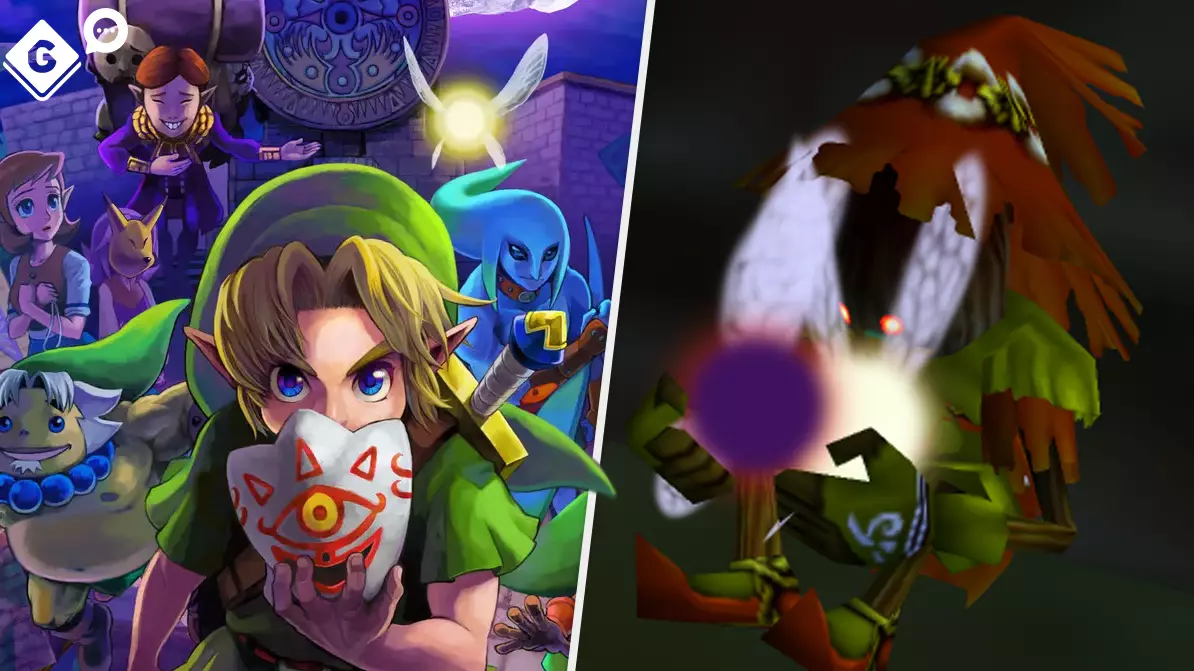
When I was 14 years old I struggled, badly, with depression.
My nan died at the start of that year, following a lengthy and often unpredictable battle with cancer. It never felt socially acceptable for a teenager to say out loud that his nan was one of his best friends, but she was. She was a wonderfully funny, generous woman that I loved very much. I still miss her every day.
I was lucky enough to never have lost anyone close to me at this point in my life, but that also meant that losing my nan tore through me and caused me pain I never previously thought possible.
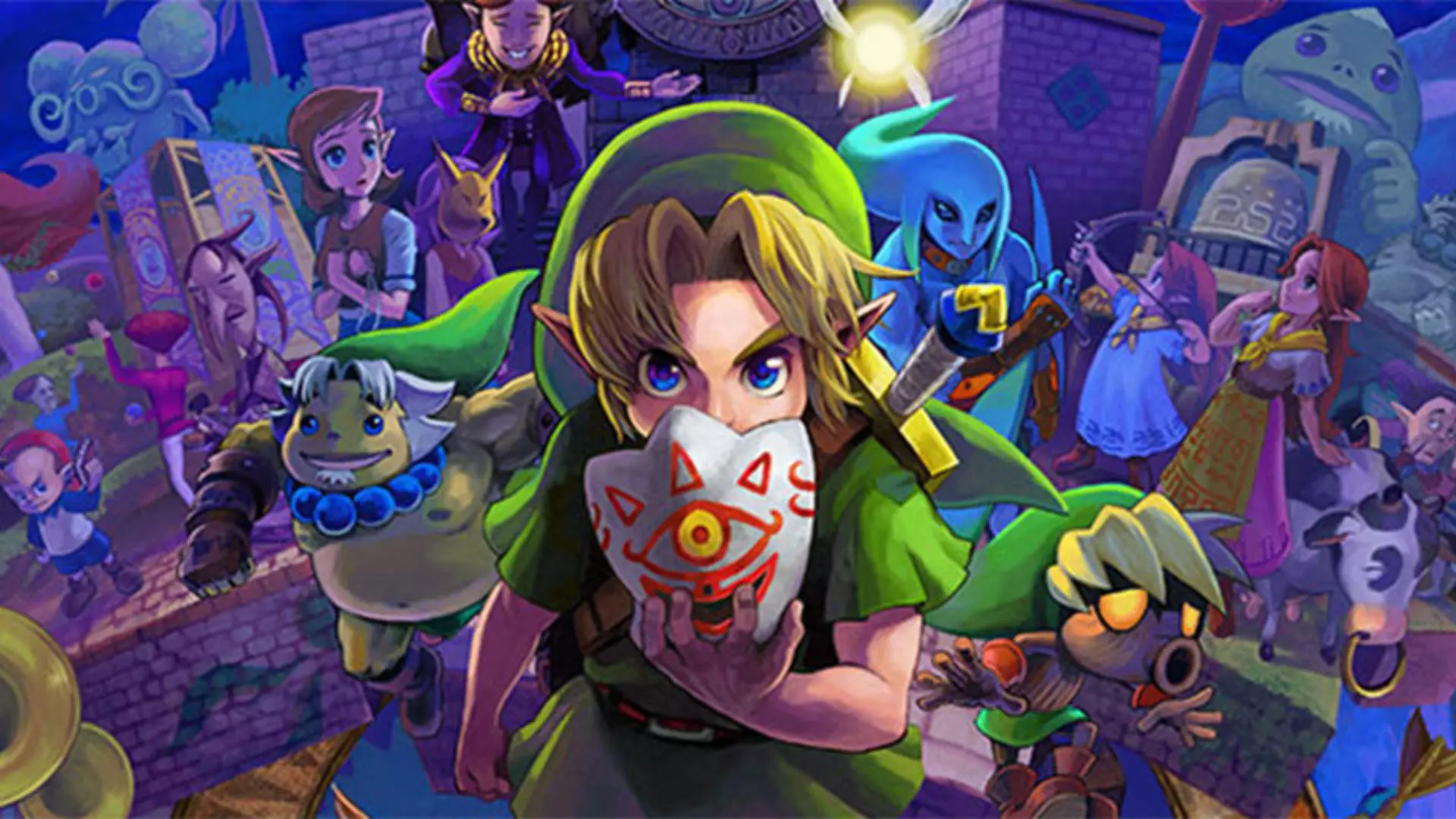
For the first couple of months I assumed the dull ache in my heart and complete inability to drum up enthusiasm for anything was a result of mourning my nan. Except I could feel myself coming to terms with her passing, while this numb pang in the pit of my stomach only continued to grow. I started pretending to be sick to avoid school. I made excuses whenever friends came calling. I fully retreated into myself.
Advert
I had no idea it was depression at the time. Back in 2008 we were nowhere near having the kind of mental health conversations that we're able to have today. When a teenage boy spends most of his time shut up in his room not wanting to go to school? Well, that seems totally normal.
If a young lad gets angry or embarrassed easily, has no idea where he fits into the world, and doesn't even know if he wants to be in it? It's assumed to have everything to do with teenage angst. Surliness and hormones. Nobody would have suspected it had a thing to do with mental health.
At no point was the "D" word ever uttered by me - or anyone. I had absolutely no reason to assume it was anything other than me just... growing up. That was a tremendous feeling, as you can imagine. Maybe you don't have to imagine.
For most of 2008, then, I was a wreck of anxiety and depressive nerves. I was confused about exactly why I felt this way, and angry that I was trapped inside a person I didn't recognise, or even like anymore.
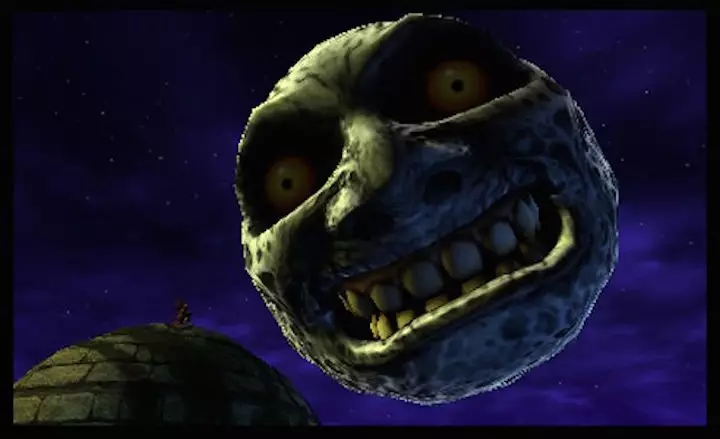
I played a lot of video games around this time, never really paying attention to them or taking them in properly. They were just a way to kill time. Then I started The Legend Of Zelda: Majora's Mask.
Advert
I was already a huge Zelda fan at this point, but it wasn't until I was able to track down the special Legend Of Zelda: Collector's Edition promotional disc for GameCube that I finally got to play the sequel to Ocarina Of Time. I was smitten almost immediately. It was as if Nintendo had peered inside my head, captured the very essence of what I was feeling, and turned it into a video game.
I related to the game from the moment I clapped eyes on the silent howling void of the title screen. The game's atmospheric opening, which shows Link travelling through a murky forest in search of an old friend, endeared me to it even more. Link is exhausted. Not the hero we knew in Ocarina Of Time. Perhaps ready to give up all hope. I knew the feeling.
After a series of increasingly unfortunate events, the adventure proper begins. You know the story, I'm sure. Link finds himself in a strange new world called Termina. Skull Kid, using the power of Majora's Mask, has set the moon on a collision course with the realm, giving our hero just 72 hours to save everything and everyone before total annihilation. Luckily, Link can cheat the time limit by using his Ocarina to travel back to the start of the three-day cycle as many times as he needs to on his quest.
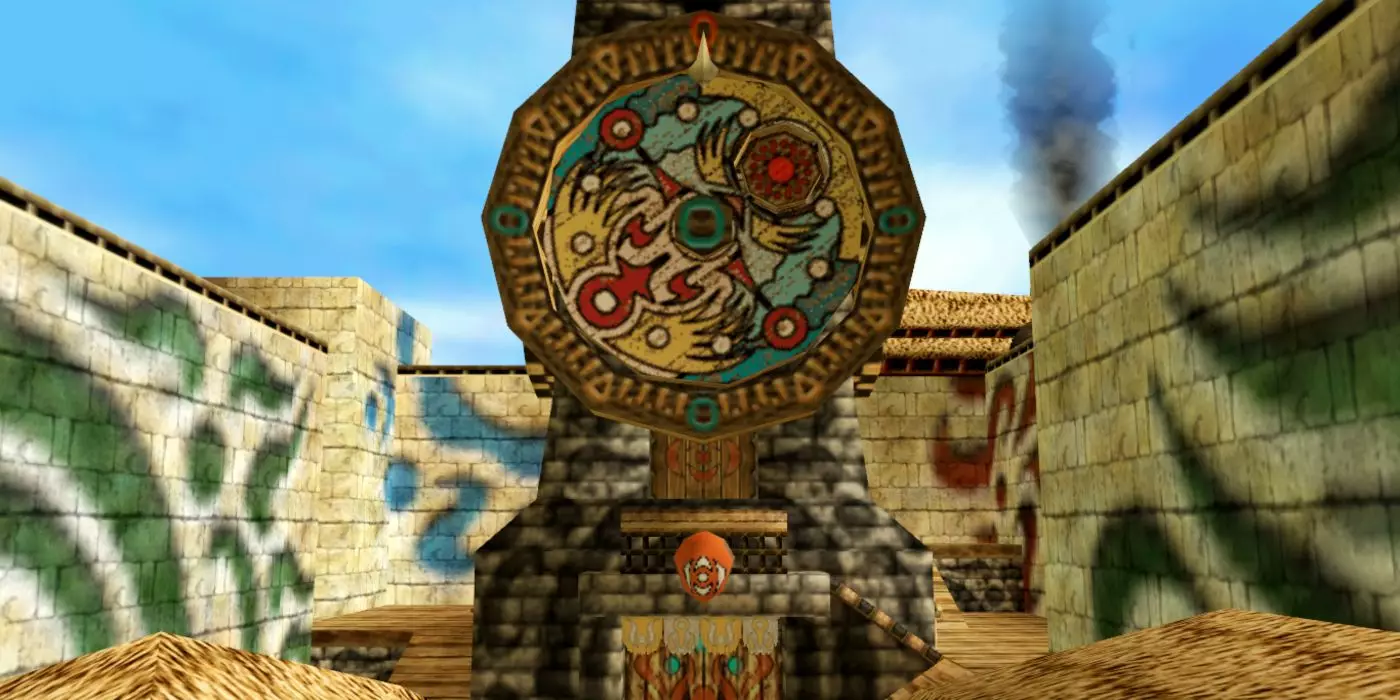
Living through those same three days over and over again, I started to come to terms with and make sense of the things I was feeling. Before, my depression was this abstract concept that I couldn't put into words or articulate properly, not that I was willing to talk to anyone about how I was feeling anyway.
Advert
While playing Majora's Mask, especially while exploring Clock Town and watching the same handful of residents go about their lives in the exact same ways over and over again, I began to understand how I felt. It was right in front of me, on my grainy little television in my dark bedroom. NPCs trapped in a seemingly endless cycle, where any positive differences are swiftly erased by time and any victories forgotten. The player can always take action to help, sure, but eventually Link needs to reset the cycle and do it all again.
For so long, I'd been feeling suffocated by life, and friends, and school. I was tired. Tired of the inescapable feeling that it was all pointless and that there was no way out. All of this felt so much worse because I was 14. I didn't know what was happening to me, and I was probably just self-centered enough to assume I was the first to ever have had this numb pang inside me. I really did think I was going crazy. But I saw myself reflected back in the cyclical nature of Majora's Mask, and a muddled mind started to become a little clearer.
I'm not saying I went outside and started singing on the street the moment I connected with Majora's Mask: I was still a jangly bag of heartbreak, and spent many days off "sick" playing the game and little else.
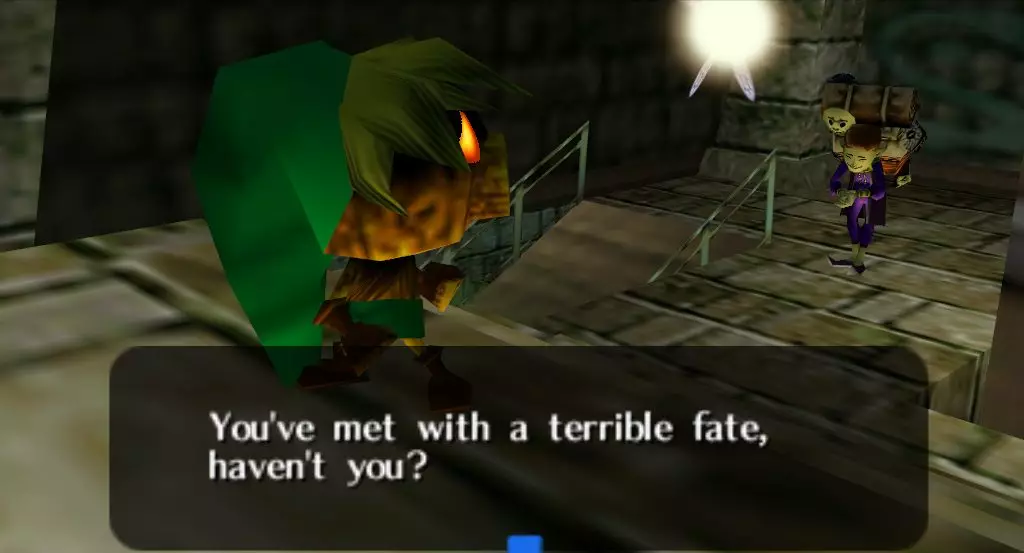
But throughout this period, playing Majora's Mask helped me feel understood and visualise the rut I was in as entirely tangible. It helped me feel that other people in the world had felt the way I was feeling. I mean, how else could they have made a game like this? Once I started to carry that knowledge with me, getting out of bed each morning became that little bit easier.
Advert
Through playing a game in which I literally worked to free a character from a repetitive and melancholy purgatory, I was slowly able to pull myself out of that same fog in the real world. To be very clear, I'm not saying that a video game "cured" my depression. It also took friends and family and a level of mental effort that even now hurts to remember. But Majora's Mask was the catalyst. It was the spark. The thing that went furthest in showing me why I didn't feel like myself anymore.
I think the beauty of a game like Majora's Mask is that it's absolutely open to multiple interpretations. To me, it's ostensibly a game about loss and how we all deal with those losses differently.
Link rails against it, refusing to accept it. Skull Kid lashes out at those around him and closes himself off from the world. The people of Clock Town, for the most part, choose to ignore it. To bury it and do everything to avoid the inevitable moment it all explodes to the surface. Or in the case of this game, comes crashing down from the sky in the form of a terrifying moon.
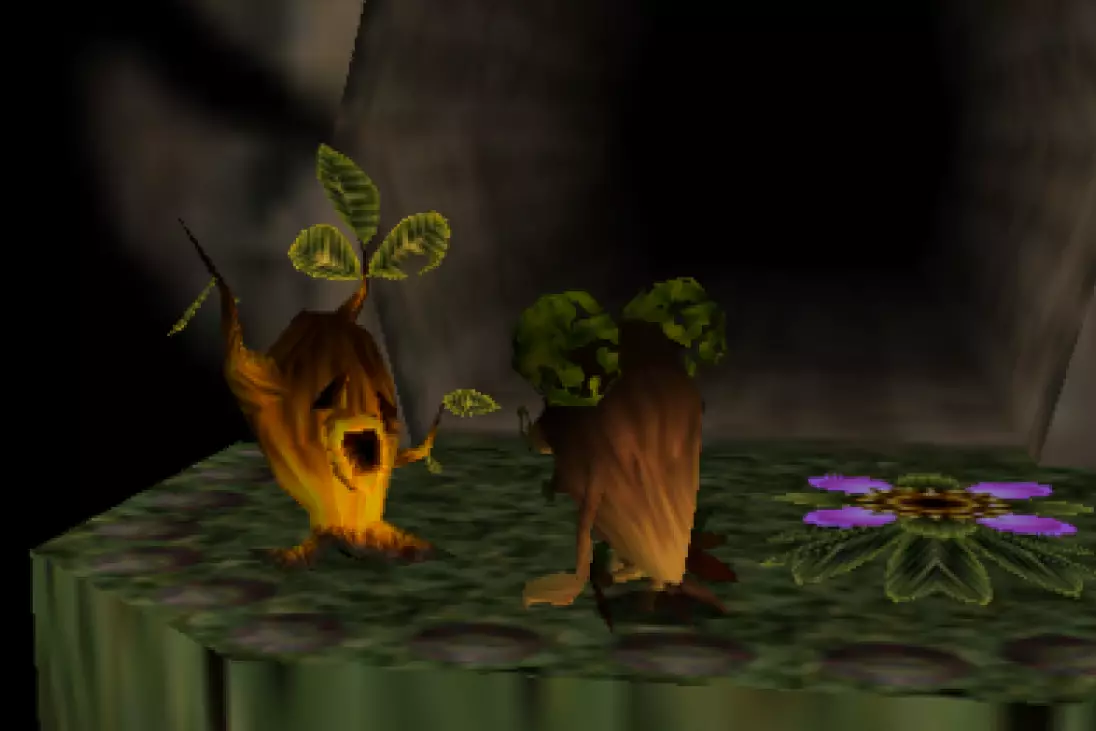
I dealt with the loss of my nan via all of the above. Some days I shut down. Some days I got angry. I pushed it all away. I let it flood my entire being. I don't know if her death is what caused my depression or if it was always there, just bubbling away under the surface.
Advert
What's clear is that it had a profound impact on me that I was unable to come to terms with until Majora's Mask showed me who I was and what exactly it was I was dealing with. And it wasn't until I knew what I was dealing with that I could start to talk about it and make my way back.
It's ironic that it took the darkest Zelda game to show me the light, but that's what Majora's Mask did. It taught me that even the most self-destructive cycles can be broken, and that in the end, a new day will always dawn.
Featured Image Credit: NintendoTopics: GAMING, News, Nintendo, No-Article-Matching, The Legend of Zelda